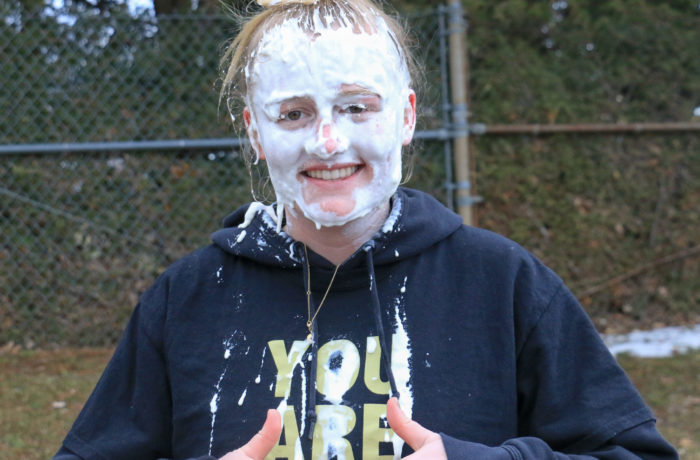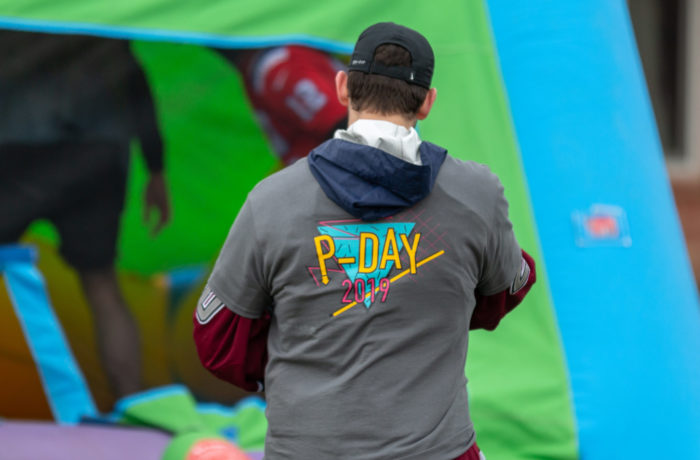By Katherine Martin
Executive Editor
It’s not heroin, it’s not ecstasy, and it’s not oxycontin. But it’s everywhere, I know where I could buy some and where I could get some for free, and neither would require me walking more than one block.
That’s how readily available Attention-Deficit/Hyperactivity Disorder (ADHD) drugs are to me, were I to want them. I have some friends taking it for academics, some for a high on the weekends and most of them are illegally taking it for both. Among them are those who have legal prescriptions, the “go-tos” for the drug.
As I noticed more and more friends buying a pill for their test and casually snorting a line on Saturday nights, I began wondering, a few steps behind the doctors and psychiatrists who have been researching this in recent years, “Just how often is ADHD medicine being abused on campus?” and, “Is it as innocent as it seems?”
I began with the students whom I knew were prescribed some sort of amphetamine, like Adderall or Ritalin, for bonafide diagnoses of ADHD and ADD. Some of them said the drugs helped them immensely. “It was finally that life changing moment the first time I could sit down and do work and wasn’t so nervous and caught up in how I used to perform academically,” said Jenna ‘19.
But some said the drugs only made their problems worse. I started asking, “Just how bad are the side effects?”
“I would go from extreme happiness to crippling depression in an hour,” said Matt ‘20. “And when it wore off I would be back to my normal self. I felt better off of it than I did on it.”

While there exists a population of students who take ADHD medicine successfully and regularly, as a college student surrounded by those with diagnosed ADHD, I was surprised to discover the more quiet stories of those who don’t have a good relationship with their medication.
Not as great as you’d think
“After four months on medication I started to get really depressed and felt nothing after the comedown. But it was worth it because I was getting good grades and everyone was off my back,” said Olivia, a senior at the University of Vermont.
Common side effects of amphetamines are lack of appetite, insomnia, irritability, rebound (comedown), and a lack of interest, according to NIH. “Some kids kind of look spaced out,” said Dr. David Rettew, a child psychiatrist at UVM. “Parents always come in and they’re worried about the zombie word, they look like zombies. I reassure them that it’s not okay with me to have your kid spacing out. I don’t consider being a zombie an acceptable outcome.”
Olivia experienced all of these side effects while taking ADHD medicine during high school, but by the time she recognized their detriments, she didn’t feel confident enough academically to stop taking them.
“I stopped doing extra curricular activities,” Olivia said. “I would come home, go to tutoring then just sit and be a zombie. I wouldn’t talk at dinner. I lost my personality. Would I have more of a creative side had I not totally zonked myself out for the past four years?”
I recognized that it didn’t make me feel good so I went and started the process of me changing my medicine every seven months to figure out the comedown. I continued to feel terrible, but when I got to college, I didn’t trust myself with academics off of it,” Olivia said. “I guess that’s where the addiction part came in. It took nine months to take myself off of it. Smoking weed helped me cope with not taking adderall. Smoking weed took the edge off of being sober. I wasn’t used to being sober ever. I finally feel like I have my soul back through and through.”
Back at St. Michael’s College, Mary ‘20 said she views her medication as a gamble between thriving academically or emotionally and socially. “If I don’t have an hour or more of work to do then no way I’m taking it because then what? I take it just for that hour and then my whole day is ruined because I can’t interact with people in the way I would want to.”
“I like it for school. If I could take it everyday I would but, it makes me act like a psycho and not a good person,” Mary said. “I would be scared if I took it every day. It’s terrible. I feel angry. Irritable. Sad.”
“This sounds crazy,” Mary mutters under her breath before telling me that she is prescribed both 15 ml of Adderall and 5 ml of Ritalin. She explains how Ritalin is quick release and works fast in the body. While her Adderall is wearing off, she takes Ritalin to help alleviate the effects of the comedown.
If the side effects of ADHD medicine can be this severe, why is it such a hot commodity for those who don’t need it?
What’s the appeal?
Across college campuses there is a growing trend of students who are not prescribed the drug seeking it for both academic and recreational use.
“There’s four people I would go to if I needed it,” said Sara ‘19. “And if those people didn’t have it I would have to ask a friend of a friend,” said Sara ‘19. “10 ml of Adderall costs $6 and 15 or 20 ml costs $16.”
“I usually take it if I have an immense amount of work and if there is leftover I take it for recreational use on the weekend. But, there are side effects. Lack of sleep. I took it once and didn’t sleep for 72 hours and that was a normal dose.”
“Taking stimulants when you don’t have ADHD can potentially cause some unpleasant side effects and may keep you awake but doesn’t seem to help with memory, retention or learning,” said Dr. Jennifer Russell, a pediatrician in Wareham, MA.
While there is no evidence that using stimulants helps people academically who don’t have the diagnosis of ADHD, academics are not the only reason students seek the drug out.
“Being a student can be overwhelming and so can the party scene,” Sara said. “Going out three nights in a row can be taxing on your body. Taking an Adderall before you go out makes it so you actually go out.”
“We usually go skiing all day Friday and we get back from the mountain beat,” said Matt, who is prescribed Adderall for his ADHD, but also uses it recreationally. “But everyone’s drinking so we rail a little Adderall and we’re ready to go, don’t feel tired anymore. We drink and we smoke and that dilutes the effects of it sometimes. It makes it more manageable. The comedown you can get rid of by drinking or smoking so you don’t have to deal with it.”
If these drugs are relied upon for the school week and the weekend, just how easy are they to get?
How easy is it to get?
“No one’s advertising that they’re selling ADHD medicine, that’s not how it goes down,” Sara said. “You hear from a friend that a friend got it from someone else. I think people who are prescribed are more likely to give it out on the weekends for recreational purposes than to let someone buy it from them for academic purposes.”
“I don’t sell them, it scares me what may happen to someone,” Mary said. “But, if you’re in the room with me on a Saturday night, sure.”
“I think there’s a responsibility shift,” Sara said. “When everyone’s in a room together on the weekend, it’s a different setting, it’s not a drug deal hand-off. You’re going to be around them when it affects them. It’s like this is fun we’re not going to sleep but it’s not going to hurt anybody, we could be doing worse drugs.”
Other people sell their Adderall more casually. “It got to a point where I didn’t tell my doctor I wasn’t taking it but I would go to get my scripts and sell them. $5 a pill, $3 if you’re a friend,” Olivia said.
“I sell my adderall,” Matt said. “In my friend group it’s commonplace, no one’s going to think twice about it, it’s not out of line.”
What’s the problem?
Whether students are seeking ADHD medication, or students are willingly selling them, there appears to be an abundance of leftover pills.
“I think it has taken doctors a little bit of time to catch up to how big of a problem this is,” Dr. Rettew, said. “I think kind of like the opioid problem with doctors prescribing too many of those, I think we’re trying to be really vigilant about it. But you know it’s hard. Psychiatry relies on people telling us what is going on.”
Some college students opt to manage their prescriptions themselves. Taking less than the amount prescribed to you simply means the medication isn’t as effective, according to Russell.
“They told me I needed to take my Adderall every day but I didn’t,” Matt said. “ I wasn’t guided on how to use it and I was probably over prescribed it.”
“I do feel that these medications can be overprescribed especially to younger children that may not truly have the diagnosis of ADHD but may have other issues such as learning problems or conduct disorder,” said Dr. Jennifer Russell. “The medications could also be overprescribed to normal teens or young adults that may feel that they have ADHD but truly are just sleep deprived or not focusing well because of being overstimulated or are smoking too much pot.”
According to Rettew, the rate of diagnoses have risen from five percent to eight to ten percent in the last 20 years.
“It’s pretty widely accepted right now that people are noticing that a higher percentage of kids meet criteria for ADHD,” Rettew, said, explaining that what counts as the symptoms of ADHD have dropped. “Now it takes less to get the diagnosis.”
Despite attention being drawn to an abused drug, some students continue to form unhealthy relationships with it. The others, fearful of the effects of their prescribed drug, don’t take it as advised. Neither are healthy uses.
“I’ve just never let myself build a relationship with adderall. I never let myself take it every day like I am supposed to. I would be scared if I took it every day. I feel like I need but I don’t act like myself when I’m on it. The high of it is great but the come down is not worth it.”
*Names changed for anonymity


